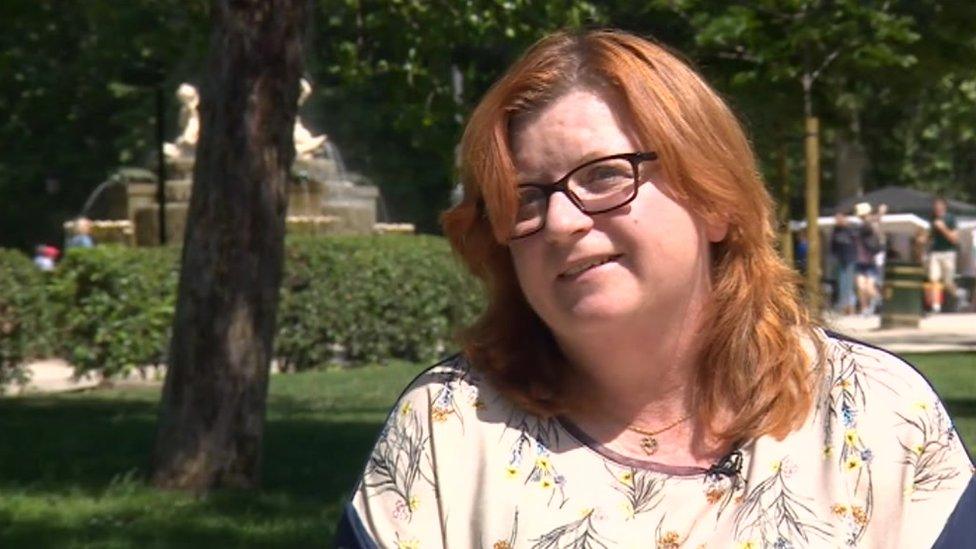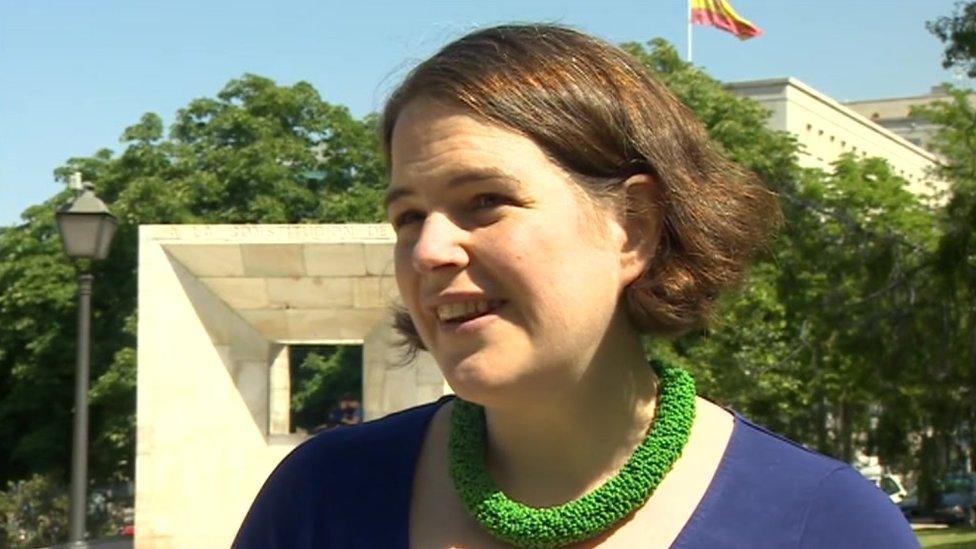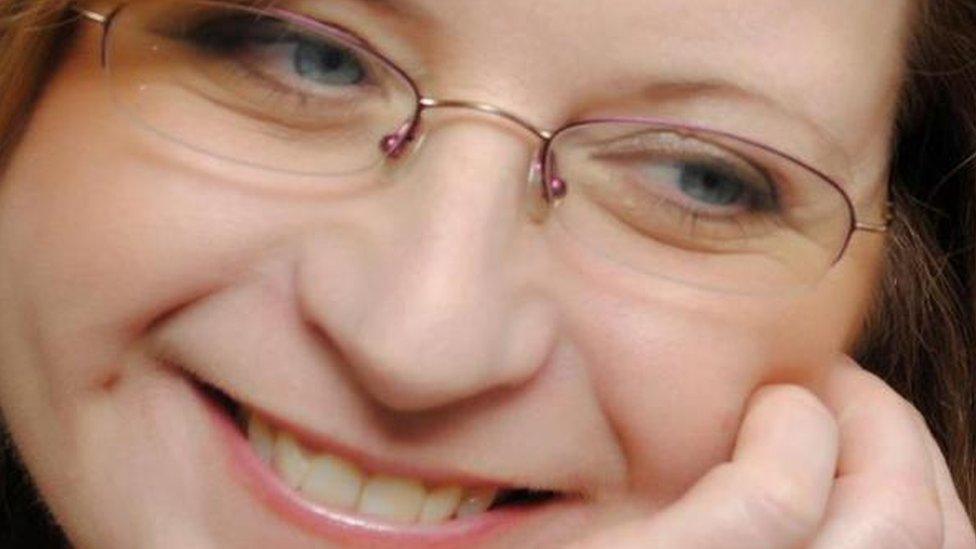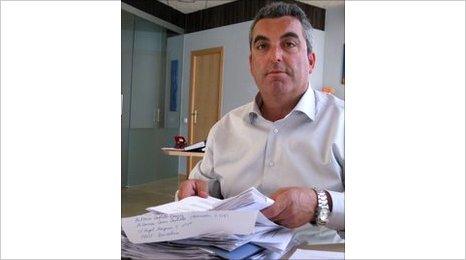Spanish authorities agree to open 'stolen' baby archives
- Published

Ruth Appleby was told her daughter had died within hours of being born in 1992
The Spanish Catholic Church and Ministry of Health have agreed to open up their archives to parents who believe their children may have been stolen at birth, an MEP has revealed.
Thousands of children are thought to have been taken since the 1930s.
The announcement came after meetings between Spanish authorities and a group from the European Parliament.
Ruth Appleby, who thinks her daughter may have been stolen, described the announcement as a "turning point".
More stories from across Yorkshire
The fact-finding mission, led by MEP Jude Kirton-Darling from the European Parliament's Petitions Committee, was triggered by 53-year-old Ms Appleby, from Catterick Garrison.
She was told her daughter died after she gave birth while living in La Coruna in 1992 but later learnt thousands of Spanish babies were taken and given up for adoption.
When she had her daughter's remains exhumed in order to bring them back to the UK in 2010 she said the skeleton she saw in the coffin appeared to be that of a much older infant.
Her case was referred to the Spanish authorities after she reported it to police, but she was unhappy with their handling of it and petitioned the European Parliament.
She said: "This meeting in Madrid feels like a bit of a turning point, it feels like there's real progress being made for the first time."

Spain's 'Niños robados' (stolen children)
The practice began in the late 1930s under the fascist regime of dictator General Francisco Franco aimed at removing babies from families deemed "undesirable"
By the 1950s it is thought organised criminal gangs had become involved selling infants for adoption to make profits
Nuns, priests, nurses and doctors have been implicated in the mass theft and trafficking of infants
It is estimated that as many as 300,000 children could have been taken
Several organisations in Spain dedicated to reuniting stolen babies with their birth parents have been formed in recent years


MEP Jude Kirton-Darling led the fact-finding mission
Ms Kirton-Darling said: "The commitment that we have had is that the Catholic Church is willing to work with the Ministry of Health and the Ministry of Justice to pool all of their archives so families will be able to search for documents they could not previously find.
"In the case of Ruth I think this is a real leap forward.
"[By raising her case] we can already see it is feeding back in terms of the legal process and I'm very hopeful that she will be able to take her case forward having thought previously that all legal avenues were closed."
- Published23 September 2015

- Published31 March 2011

- Published27 January 2011